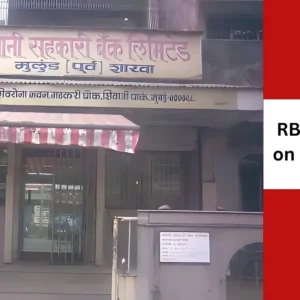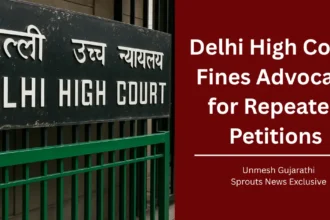₹6,000 Cr Health Tender Sparks Outrage
• MahaYuti Govt’s Contractor Bias
• Emergency Services, Expensive Secrets
Unmesh Gujarathi
Sprouts News Exclusive
Contact: +91 9322755098
The MahaYuti government faces backlash for awarding a ₹6,000 crore ambulance contract to three controversial firms without investigation into past allegations. Critics, including the Sprouts News Team, raise concerns over transparency, inflated costs, and lack of oversight, questioning the deal’s long-term impact on Maharashtra’s public health and urban emergency infrastructure.
Contents
₹6,000 Cr Health Tender Sparks Outrage• MahaYuti Govt’s Contractor Bias• Emergency Services, Expensive SecretsUrban Health Infrastructure Questioned Amid ₹6,000 Cr Ambulance TenderAlso Read: Pakistan Fall on the Brink: Operation Sindoor Sparks Collapse.Transparency Concerns Grow in Maharashtra’s Real Estate-Health Nexus
The Eknath Shinde-led MahaYuti government is under fire for awarding a massive, decade-long ambulance service contract to three controversial private firms—Sumit, SSG, and BVG Maharashtra EMS Pvt Ltd. Critics allege that these companies, which have been previously linked with questionable deals, were favored through a non-transparent tendering process conducted via the state’s Health Department.
This new agreement forms the foundation for launching a state-wide 108 Emergency Medical Services (MEMS) network. Under current market estimates, maintaining such a fleet would typically cost around ₹325 crore annually. However, the government contract commits ₹725 crore per year, incurring an excess of ₹400 crore annually. With an 8% annual escalation, the total expenditure could balloon to ₹6,000 crore over ten years.
Urban Health Infrastructure Questioned Amid ₹6,000 Cr Ambulance Tender
According to the contract details, 1,756 ambulances will be deployed across Maharashtra in five phases starting November 2025. These include conventional ambulances, advanced life support units, neonatal transport vehicles, emergency response bikes, and even water ambulances designed for riverine and coastal transport.
While officials claim this modernized fleet will enhance healthcare delivery, concerns persist over the fiscal implications and contractor selection. Experts in urban development and public health warn that such long-term public-private partnerships demand transparent bidding and third-party audits—both of which are reportedly absent here. The Sprouts News Team has found no evidence of an independent review or accountability mechanism tied to this deal.

Also Read: Pakistan Fall on the Brink: Operation Sindoor Sparks Collapse.
Transparency Concerns Grow in Maharashtra’s Real Estate-Health Nexus
Observers argue that the government’s decision not to probe earlier corruption allegations tied to these contractors raises serious questions about intent. The lack of due diligence and oversight mechanisms has sparked fears of misallocation of public funds, potentially undermining trust in essential health infrastructure.
Moreover, critics argue that a project of this scale must align with urban emergency response strategies, particularly in rapidly urbanizing areas where ambulance access remains inconsistent. The Sprouts News Team also notes that with no cost-benefit analysis made public, urban planners and policy advisors remain in the dark about the long-term viability of this investment.













